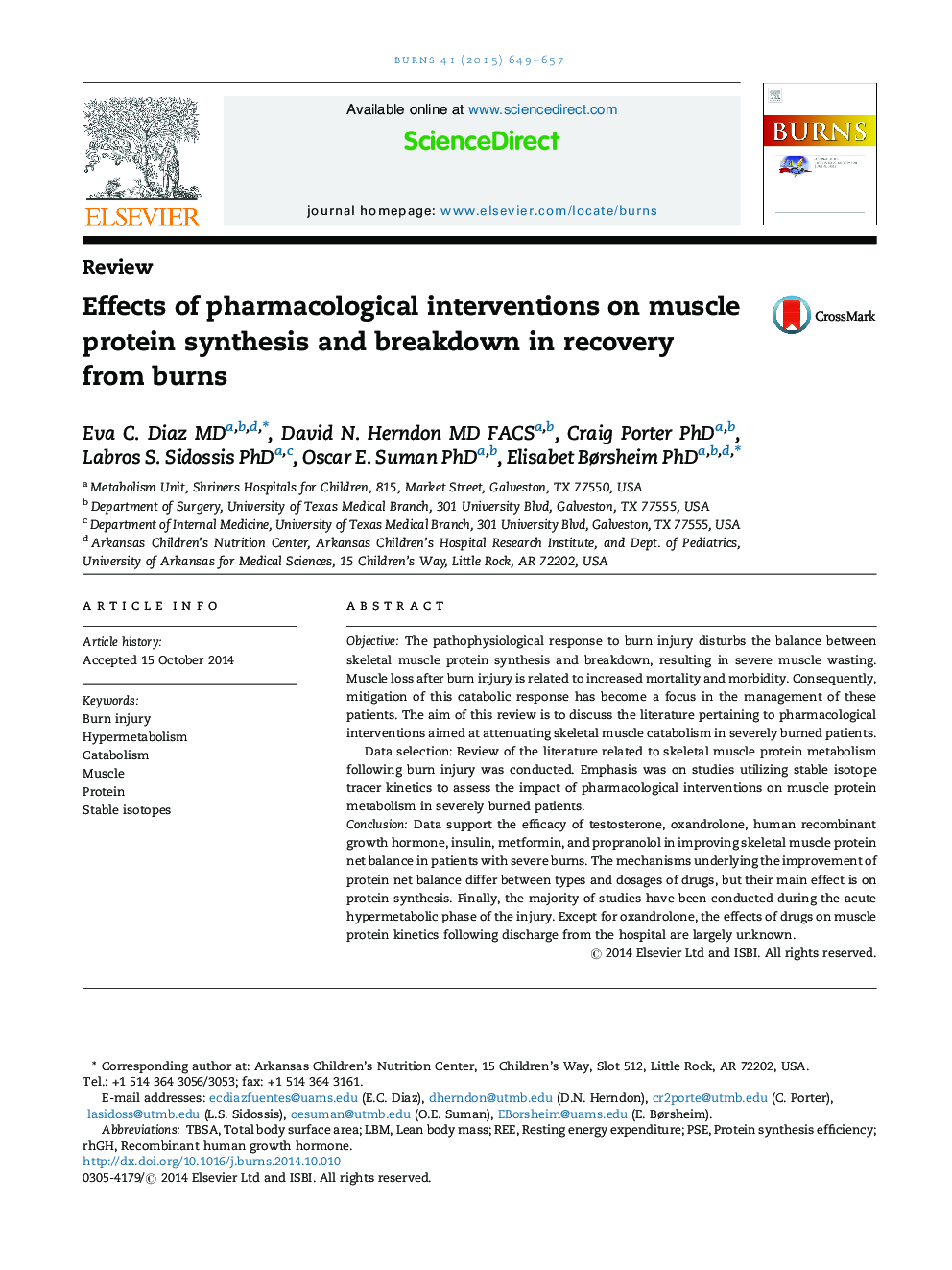| Article ID | Journal | Published Year | Pages | File Type |
|---|---|---|---|---|
| 3104281 | Burns | 2015 | 9 Pages |
•We discuss data pertaining to the effects of drugs on skeletal muscle metabolism.•Protein synthesis is the most responsive parameter to pharmacological interventions.•Patient's age, drug dosage and time post-burn affect the response to these drugs.•The effects of most drugs following discharge from the hospital are largely unknown.
ObjectiveThe pathophysiological response to burn injury disturbs the balance between skeletal muscle protein synthesis and breakdown, resulting in severe muscle wasting. Muscle loss after burn injury is related to increased mortality and morbidity. Consequently, mitigation of this catabolic response has become a focus in the management of these patients. The aim of this review is to discuss the literature pertaining to pharmacological interventions aimed at attenuating skeletal muscle catabolism in severely burned patients.Data selection: Review of the literature related to skeletal muscle protein metabolism following burn injury was conducted. Emphasis was on studies utilizing stable isotope tracer kinetics to assess the impact of pharmacological interventions on muscle protein metabolism in severely burned patients.ConclusionData support the efficacy of testosterone, oxandrolone, human recombinant growth hormone, insulin, metformin, and propranolol in improving skeletal muscle protein net balance in patients with severe burns. The mechanisms underlying the improvement of protein net balance differ between types and dosages of drugs, but their main effect is on protein synthesis. Finally, the majority of studies have been conducted during the acute hypermetabolic phase of the injury. Except for oxandrolone, the effects of drugs on muscle protein kinetics following discharge from the hospital are largely unknown.
